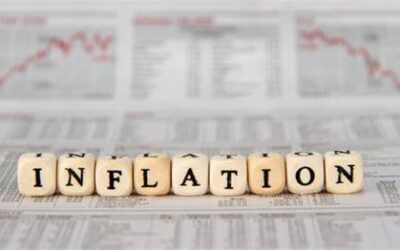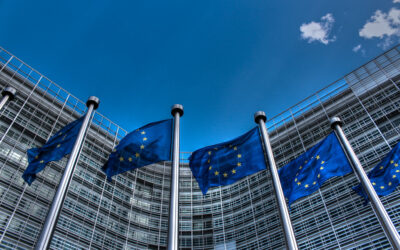
To conclude the article series about Dutch-Chinese relations, this week’s article delves into the investments and trade relations between the two countries by analysing the numbers from the past few years.
China stands as a crucial trading and investment partner for the Netherlands. With its rapidly expanding markets, substantial research and development investments, abundant talent pool, and robust knowledge infrastructure, numerous opportunities beckon Dutch companies and institutions. It is imperative to collaborate based on mutual interests and capitalize on emerging prospects. The Dutch government plays a pivotal role in facilitating such cooperation. However, it is essential to recognize that China’s economic system diverges from a market-oriented approach and lacks the legal framework typical in Western democracies. Hence, the Dutch government aims to address unfair trade practices and advocate for greater equilibrium and reciprocity in trade dealings with China, particularly concerning pivotal technologies and essential raw materials. Additionally, safeguarding intellectual property, preventing unauthorized technology transfers, and managing investment risks remain paramount objectives.
The ascent of China’s economy and its integration into global value chains have largely contributed to the expansion of the world economy, yielding undeniable benefits for the Dutch economy. The prosperity of the Dutch trade is intricately tied to the countries’ ability to earn internationally. Leveraging the commercial practices, innovation capacity, and collaborative efforts between the government, businesses, and knowledge institutions, the Netherlands derives one-third of its income from abroad, supporting 2.2 million jobs linked to international trade. While China’s contribution to Dutch exports and investment remains relatively modest, it is experiencing rapid growth.
When discussing Dutch-Chinese trade relations, it is to mention the key figures that outline the Sino-Dutch economic relations:
- More than 1,000 Dutch subsidiaries operate in China, while around 520 Chinese subsidiaries are established in the Netherlands.
- Dutch exports to China surged from €1 billion to over €11 billion between 2001 and 2017, representing 2.4% of total Dutch goods exports. Imports from China during the same period rose from €9 billion to over €36 billion, constituting 8.8% of total Dutch goods imports.
- Dutch exports of services to China stood at €2.4 billion in 2017, accounting for 1.2% of total Dutch services exports. Meanwhile, imports of services from China totalled €3.6 billion in 2017, making up 2% of total Dutch services imports.
- Dutch foreign direct investment (FDI) in China grew by €10 billion to nearly €27 billion between 2012 and 2017. Conversely, Chinese direct investment in the Netherlands increased from €3 billion to €29 billion in 2017, marking an almost tenfold rise. Despite this considerable growth, the Chinese share of total investment in the Netherlands remains modest at 0.7%.
Focusing on the most recent numbers, the Netherlands is a significant importer of electronic devices like modems, routers, computers, and laptops from China, with total imports from China exceeding 64 billion euros in 2022. These goods primarily arrive in the Netherlands via large container ships. The value of imports from China has more than doubled since 2015, rising from 29 billion euros to 64 billion euros in 2022. A portion of this increase can be attributed to higher prices, particularly notable in 2022 across various product categories. However, even excluding price changes, imports from China have experienced much greater growth compared to total goods imports over the past thirty years. In 2022, Chinese imports constituted 9.5 percent of all goods imported into the Netherlands, positioning China as the third-largest trading partner.
Given its ports and rivers, the Netherlands serves as a gateway to other European markets, facilitating a broader flow of goods beyond those destined solely for the Dutch market. The total flow of goods, including those retained under foreign ownership and re-exported to other nations, amounted to 125 billion euros. The Netherlands also exports goods to China, albeit at a lower value compared to imports. In 2022, exports to China totalled 14.6 billion euros, representing approximately 2% of total Dutch goods exports for that year. China ranked as the tenth largest export destination for Dutch products in 2022. Specialized machinery, such as Dutch chip machines, constitutes a significant portion of exports to China, amounting to 22.4 billion euros in 2022. Additionally, processed foods like baby formula (milk powder) are popular export items to China, valued at 2.3 billion euros.
To conclude, after the pandemic years, Dutch-Chinese investments and trade relations grew significantly, with both countries relying on each other for future goals. While China is the 3rd largest importer in the Netherlands, the position of the Netherlands in the European Union is facilitating the development of the bilateral relations between China and the EU.
References
Dutch Ministry of Foreign Affairs. (2023). The Netherlands and China: a new balance. Dutch Ministry of Foreign Affairs.
Het Centraal Bureau voor de Statistiek (CBS). (2023, September). What do we import from China? Retrieved from The Netherlands in numbers: https://longreads.cbs.nl/the-netherlands-in-numbers-2023/what-do-we-import-from-china/
Photo:
1_JMDOZhcEc4qW9-X9DfJL2A.jpeg (1200×794) (researchleap.com)



